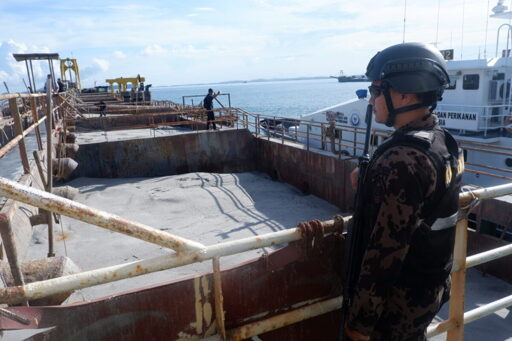The Indonesian government is revising a regulation that reopened the export of dredged sea sand, after the country’s Supreme Court annulled key provisions over environmental and legal concerns. In a ruling last month, the court struck down three articles in a 2023 regulation that had lifted a 20-year ban on sea sand exports. The judges said the provisions violated the country’s 2014 Marine Law and could potentially exacerbate environmental damage, rather than fulfill the government’s obligation to protect marine ecosystems. “By reopening permits for sea sand exports through the regulation, the government instead risks worsening already damaged environmental conditions,” the court said in its decision published June 2. The ruling followed a judicial review request filed by law lecturer Muhammad Taufiq, who argued the regulation conflicted with existing legislation and lacked a strong legal foundation. In response, Marine Affairs and Fisheries Minister Sakti Wahyu Trenggono said his office is now working with other ministries to revise the annulled provisions. After the regulation was issued in May 2023, the fisheries and trade ministries introduced additional rules to manage export permits, designate dredging zones, and mitigate environmental impacts. A typical barge used for dredging sand from the seafloor. Image by Yogi Eka Sahputra/Mongabay Indonesia. Supporters of the export policy claimed dredging would benefit ocean health by removing excess sediment and generate foreign exchange. But critics argued that it threatens marine ecosystems and coastal communities in Indonesia, the world’s largest archipelagic nation, where millions rely on fishing for their livelihoods. Indonesia initially banned…This article was originally published on Mongabay
From Conservation news via this RSS feed


